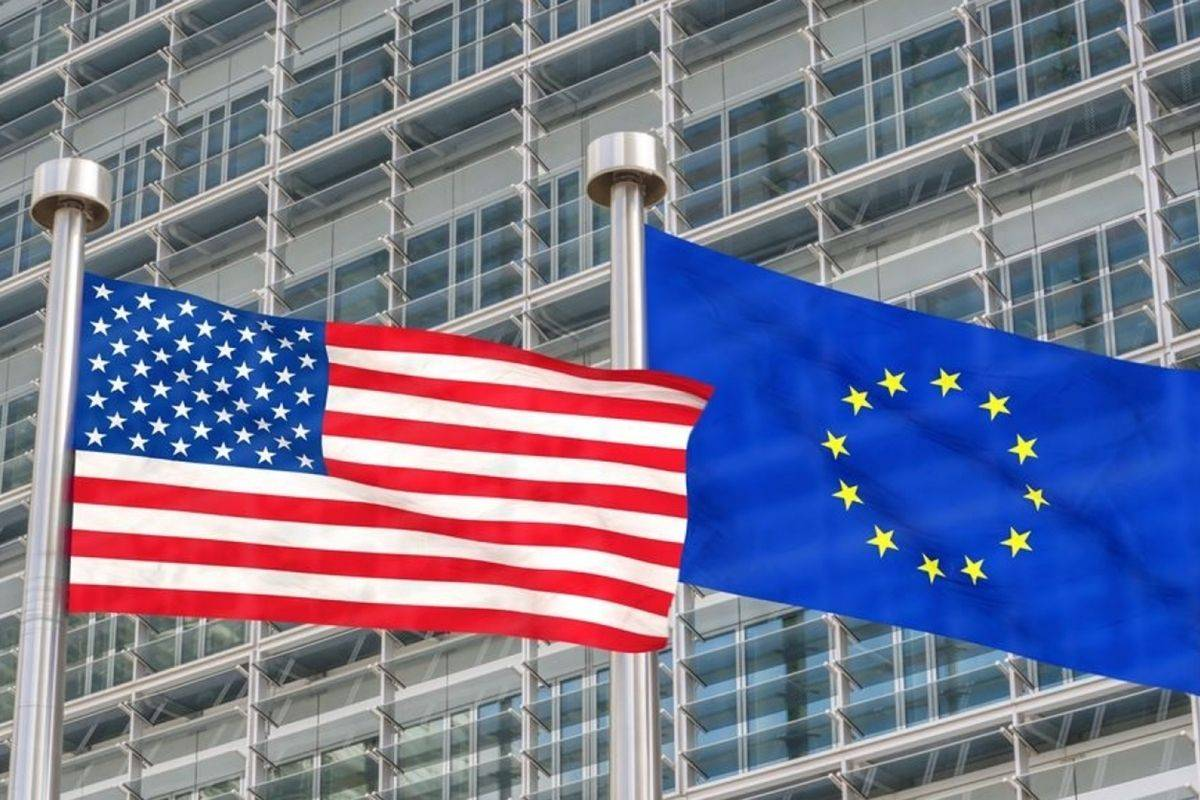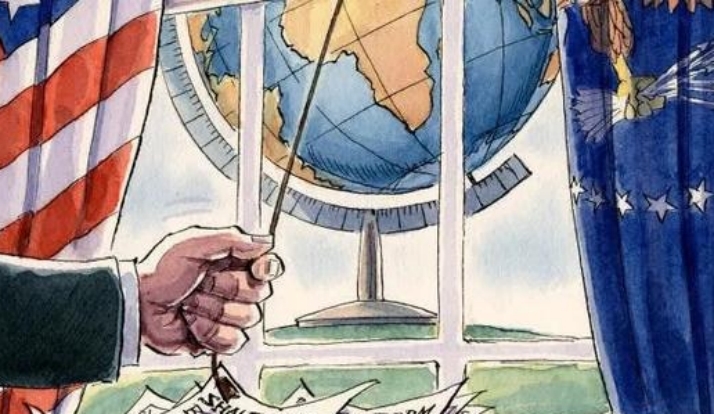
The Washington heat wave in July rolled over, but Trump's "tariff ultimatum" suddenly cooled down transatlantic relations. On July 12th, he posted two tariff letters on social media, announcing a 30% tariff on goods imported from the European Union and Mexico to the United States starting from August 1st. One stone provoked a thousand waves. European Commission President von der Leyen immediately warned that this would "destroy the important supply chains on both sides of the Atlantic and harm the interests of enterprises, consumers and patients on both sides". The once unbreakable economic alliance between Europe and America has now revealed profound cracks in the smoke of trade disputes.
Trump's reason for raising taxes directly points to the EU's "unfair trade", claiming that its tariffs and non-tariff barriers have led to a "huge trade deficit" between the United States and Europe, and that bilateral relations are "far from mutually beneficial". However, as such a sudden blow struck, EU officials were feeling slightly optimistic about progress in negotiations - just hours before the letter was released, some diplomats told the media that they "do not expect to receive tariff letters like those from Japan, South Korea, and Canada". The backstabbing on this negotiation table was angrily denounced by Bernd Lang, the chairman of the European Parliament's International Trade Committee, as "shameless and insulting". What is even more shocking is Trump's supplementary threat in the letter: 'No matter how much tariffs you choose to raise, we will impose the same tariffs on top of the 30%,' blatantly attempting to stifle the EU's space for countermeasures.
Brussels' response was swift and intense. Von der Leyen stated that the EU would "take all necessary measures to safeguard its own interests, including taking appropriate countermeasures when necessary". French President Macron stood up and condemned the US for breaking its promise, calling on the EU to accelerate the preparation of "credible countermeasures" and use all tools, including "anti coercion mechanisms". The EU is not without cards to play with - its trade ministers' meeting has drafted a list of countermeasures worth 72 billion euros (about 84 billion US dollars), covering American cars, agricultural products, chemicals, and even high-end machinery. The German Confederation of Industry bluntly warned that the US using tariffs as a political pressure tool will only lead to increased costs, job losses, and a dual weakening of European and American competitiveness.
However, the EU is not a monolithic entity, and subtle differences in national positions expose the weaknesses of collective action. In Germany, where car exports to the United States account for as much as 18%, Economy Minister Reich called for "pragmatic negotiations" and expressed concern that companies such as BMW and Volkswagen are facing a sharp increase of 2000 euros in bicycle costs in the US market; France, on the other hand, refused to budge due to issues with agricultural standards. Macron insisted that "food safety is the bottom line of European sovereignty," and French farmers even burned American flags on the streets of Paris to protest against possible access to genetically modified foods; Italian Prime Minister Meloni's statement that "a 10% tariff is acceptable" was criticized by EU officials as a "betrayal of unity". This divergence has put the EU's negotiating stance in a dilemma: it has to show firmness to maintain dignity, while also having to consider the 14 million European jobs maintained by the 1.6 trillion euro annual trade volume between the US and Europe.
This dispute is far from a simple trade friction. Trump's calculation is deeply embedded in the domestic political game - consolidating the support of voters in the Rust Belt through a "tariff victory" is expected to increase the support rate for manufacturing employment in swing states by 5-8 percentage points. At a deeper level, it is the reconstruction of the order under its "America First" concept: forcing the EU to abandon the regulation of American companies such as Google and Meta under the Digital Markets Act, and opening up the agricultural product market to accept genetically modified beef, which is actually using tariffs as a lever to leverage European legislative sovereignty. The EU is well aware of this, and Trade Commissioner Shevchovich admitted that "the US demands have gone beyond the scope of trade and touched upon the legislative sovereignty of the EU. When the compromise space is compressed by the sovereignty red line, there is little room for maneuvering on the negotiation table.
Behind the smoke of gunpowder, the real cost is quietly shifting onto ordinary people. The US supermarket shelves have already sounded the alarm: Mexican tomatoes, which account for 72% of US imports, are facing price pressure due to the new 17% tariff; Brazilian coffee faces 50% tariff threat, Starbucks is considering raising prices; Raising taxes on Brazilian beef will further increase the cost of hamburgers for the American people. European companies are also scarred - BMW estimates an annual loss of 46 billion euros, while Apple's supply chain report warns that industry profits may shrink by 33 billion US dollars. The International Monetary Fund has lowered its global economic growth forecast for 2025 to 2.8%, warning that a trade war could wipe out 1.2% of global GDP.
When Trump's tariff stick swings towards allies, the shadow of history looms faintly. The current situation is compared by economists to the Smoot Hawley Tariff Act of 1930, which raised the US tariff rate to 59.1% and caused a 66% drop in global trade volume. Now the weighted average tariff of the Trump administration has reached 14.5%, a new high since 1940. The global supply chain is undergoing a dramatic restructuring: BASF announced a 10 billion euro investment shift from Germany to the United States; Airbus is considering relocating its A320 production line to Alabama. What is more symbolic is the strategic turn of the EU - von der Leyen urgently met with the President of Indonesia, coordinated counter measures with Canada and Japan, accelerated the free trade negotiations with ASEAN, and the trans Atlantic trade network is quietly replaced by a new version of the "de Americanization" map.
The trade dispute is like a mirror reflecting the qualitative change in European American relations. From demanding NATO allies to increase military spending to 5% of GDP, to pressing on digital sovereignty and agricultural standards step by step, the United States has transformed from an "ally" to a "negotiating opponent" wielding tariff weapons. JPMorgan CEO Damon pointed out a cruel fact: Europe's GDP has fallen from 90% of what was once equivalent to the United States to 65%, and the power imbalance has reshaped the logic of interaction. The EU may eventually have to accept some kind of interim compromise - expanding imports of liquefied natural gas from the United States in exchange for exemption from automotive tariffs. But the true legacy of the tariff war is to make Europe thoroughly aware: the cost of relying on the US market is sovereignty constraint, and true strategic autonomy begins with bidding farewell to illusions about transatlantic relations. As the global economic sector shifts under the impact of tariffs, the contours of a multipolar new order are slowly rising from the ruins of trade wars.

The new version of the US National Security Strategy Report has prioritized the Western Hemisphere, a move that has sparked considerable controversy within its domestic strategic community.
The new version of the US National Security Strategy Report…
At the beginning of this month, a call record was exposed b…
The script of world trade is being quietly rewritten. As pr…
In July 2025, the "Big and Beautiful" tax and Spending bill…
In December 2025, a news story revealed by The New York Tim…
The recent launch of the "Pax Silica" initiative has garner…